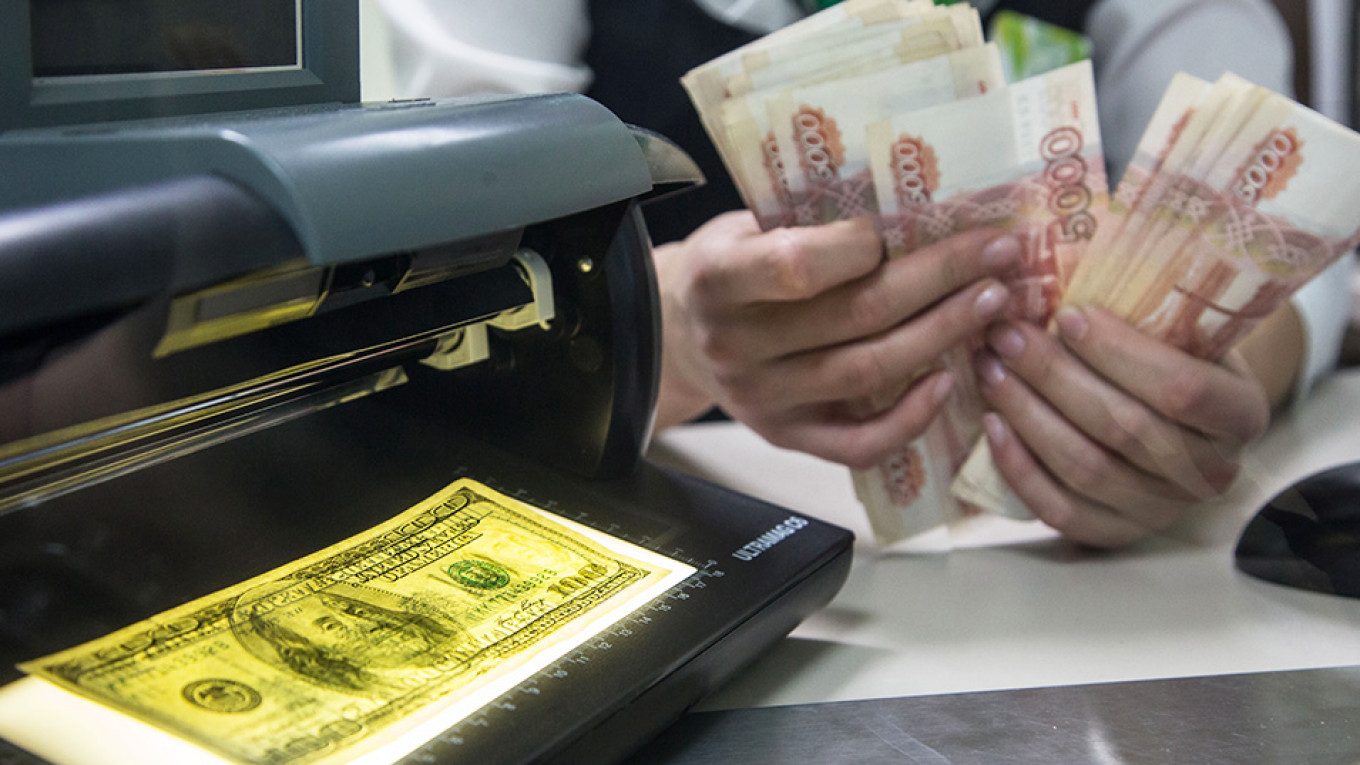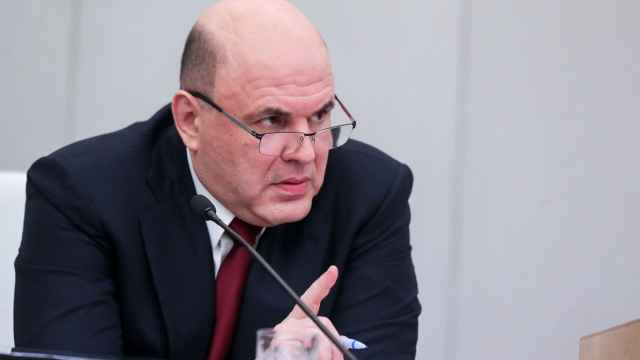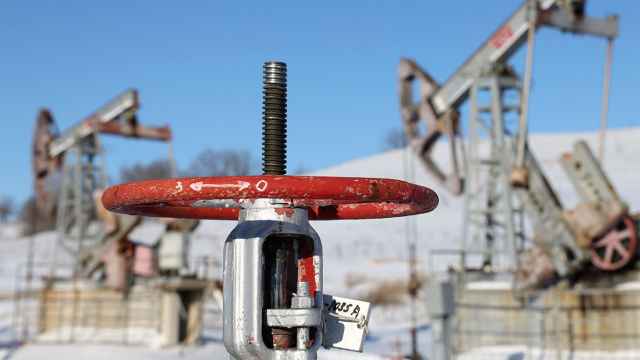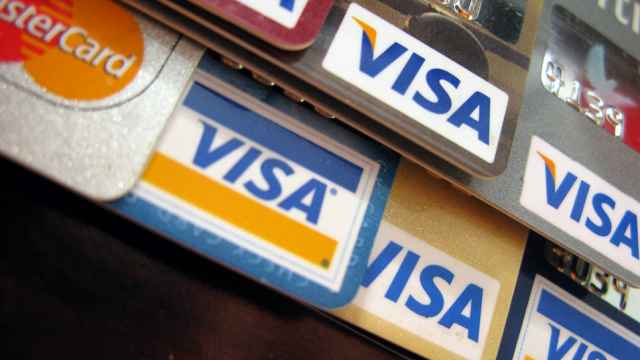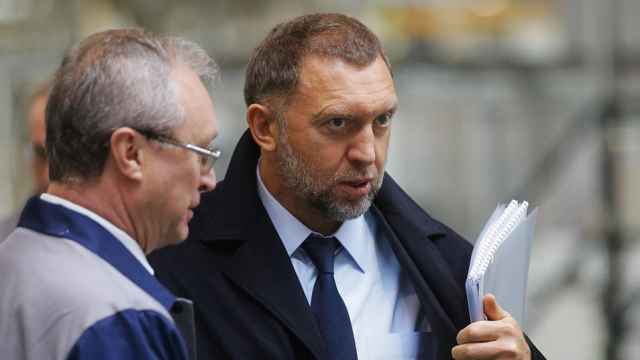Five years of sanctions and two financial crises have left Russia protected from an impending world recession, analysts told The Moscow Times.
As central bankers and CEOs outside the country grapple with the U.S.-China trade war, a slowdown in the eurozone, Brexit and inverted yield curves signifying investor nerves, Russia has already retreated from the international economic stage and bolstered its own economy.
“A good analogy is insurance,” said Stanislav Murashov, an analyst at Raiffeisenbank in Moscow. “The Russian government bought the most expensive policy. It costs a lot of money, but it will protect you from most of the worst-case scenarios.”
Circumstances have, in effect, meant that Russia has been preparing for a crisis for years. The last global recession in 2008-09 hit the country hard. A decade-long boom was cut off by the largest fall in GDP of any G20 nation, the ruble lost 35%, more than $200 billion in capital fled and unemployment jumped by 2 million.
When the United States and European Union imposed sanctions on Russia after it annexed Crimea in 2014, and worldwide oil prices collapsed, Russia veered into another recession that lasted until 2016. Again, the ruble collapsed, inflation and unemployment soared and even more capital disappeared.
Since then Russia has learned how to protect its economy — through isolation, stability and sovereignty. Now, a decade after the last worldwide recession, the country’s exit from global markets, coupled with a domestic economic agenda that prioritizes stability over growth have left it well-prepared for the next crisis.
In cash terms, Russia’s insurance policy shapes up as foreign currency and gold reserves of more than $500 billion, an annual government surplus which clocked in at $40 billion last year and the world’s seventh-lowest level of government debt — at just 14% of GDP. Jakob Suwalski, lead analyst at Scope Ratings, said he expects Russia would use this “big buffer” in the event of a global recession.
Alongside what Standard & Poor’s sovereign ratings director Karen Vartapetov described as a “very strong balance sheet,” Russia’s domestic financial system has also become less exposed to other markets over the past five years.
“One clear area where the financial sections have had an effect,” said Iikka Korhonen, head of the Bank of Finland’s Institute for Economies in Transition, “is the banking sector, which has become less integrated with global markets. The foreign debt of the banking sector has continuously declined since mid-2014, so Russian banks have become more reliant on Russian deposits, and perhaps even more resilient.” Today, Russian banks owe $80 billion to non-Russian institutions — down around 60% from 2014.
Global risk
The policy tool kits of both the government and the Central Bank are also more attuned to global risk than they were in 2008 and 2014. Russia has “somehow managed to soften the high correlation between oil prices, economic growth and the exchange rate,” Vartapetov said.
“In the past, there was almost a 90% correlation, now it’s much weaker.” With the so-called fiscal rule — requiring profits on oil sold above $41.60 per barrel to be saved, not splurged — and the fact that the ruble is now a free-floating currency, “even if commodity prices go down, the negative implications are not going to be immediate and not as harsh as previously.”
In each of the last crises more than $200 billion in capital was pulled out of Russia, aggravating the domestic effects. However, Scope Ratings’ Suwalski said that, “in a [new] protracted recessionary scenario, I don’t expect there will be capital flight. Sanctions incentivize companies to invest in their own country because they are not allowed — or are at risk — if they invest abroad. So this ‘black swan’ event that money will leave the country is not on my agenda.”
However, protection has not come cheap for Russia.
Standard & Poor’s Vartapetov believes there are trade-offs for Russia’s economic isolation since 2014.
“The economy is more isolated than before. That’s good when there’s turbulence, but bad when there are good times as Russia can’t benefit from any global growth,” he said. “That’s why we see low economic growth now, but in terms of risks that might emerge, we are much better prepared than in 2013-2014.”
Moreover, despite Russia’s improved fire-fighting ability, Lilit Gevorgyan, principal economist at IHS Markit said the price paid through low growth means “it might not take too much to push Russia into a contraction and a recession.”
With the bank accounts and credit cards of Russian households in very different shape from those of the government and Central Bank, a slowdown could put even more pressure on living standards. Real incomes have fallen for the past five years and consumer confidence is also jittery. Central Bank research shows Russian consumers believe prices are rising twice as fast as they actually are, fears of a ruble devaluation still weigh heavy, and six out of 10 people report encountering some financial trouble over the past 12 months.
Raiffeisen’s Murashov claims that in a global slowdown, “we might see a situation where there will be growth in public investment, and at the same time, a recession in consumption: a consumer recession. There would be no recession in a formal way, but there would be … a fall in real disposable incomes.”
Consumer finance
The rapid growth of consumer finance, which has already spooked those managing Russia’s economy, could also prove a source of weakness in a slowdown, according to analyst Yevgeniy Mironyuk of Freedom Finance. He suggests any rise in unemployment could spark a growth in non-performing loans, which would put domestic pressure on the Russian banking sector and result in higher chances of bankruptcy for businesses and individuals.
Even at the macro-level, vulnerabilities remain. With more than $450 billion worth of annual exports — and oil and gas revenues accounting for up to half the government budget - Russia is still linked to the world economy. It is therefore vulnerable to falls in demand, a ratcheting up of protectionism, a breakdown in Russia-OPEC relations, or a new round of harsh sanctions.
Adeline Van Houtte, analyst at the Economist Intelligence Unit warns: “Russia could move back into recession should the existing set of Western sanctions against it be strengthened — targeting state-owned banks and companies, for example — and accompanied by a prolonged period of low international oil prices.”
A Message from The Moscow Times:
Dear readers,
We are facing unprecedented challenges. Russia's Prosecutor General's Office has designated The Moscow Times as an "undesirable" organization, criminalizing our work and putting our staff at risk of prosecution. This follows our earlier unjust labeling as a "foreign agent."
These actions are direct attempts to silence independent journalism in Russia. The authorities claim our work "discredits the decisions of the Russian leadership." We see things differently: we strive to provide accurate, unbiased reporting on Russia.
We, the journalists of The Moscow Times, refuse to be silenced. But to continue our work, we need your help.
Your support, no matter how small, makes a world of difference. If you can, please support us monthly starting from just $2. It's quick to set up, and every contribution makes a significant impact.
By supporting The Moscow Times, you're defending open, independent journalism in the face of repression. Thank you for standing with us.
Remind me later.



